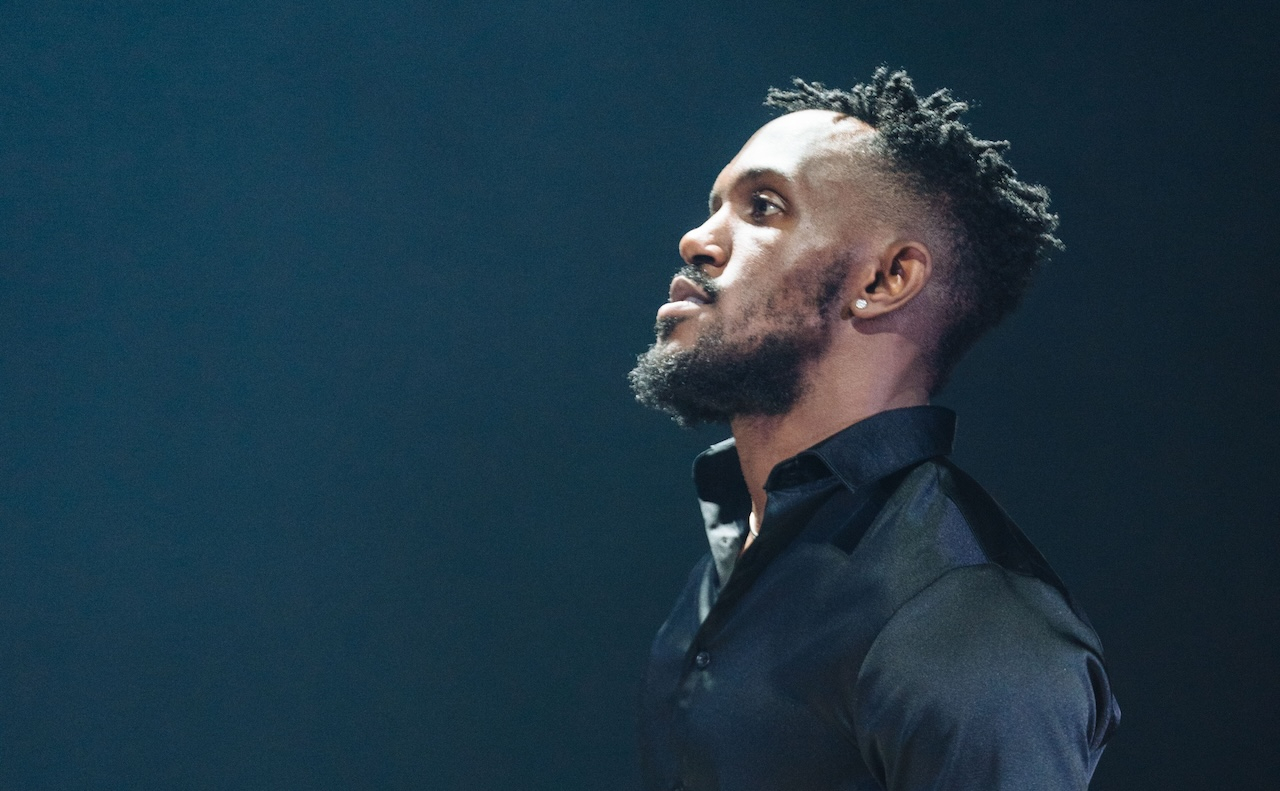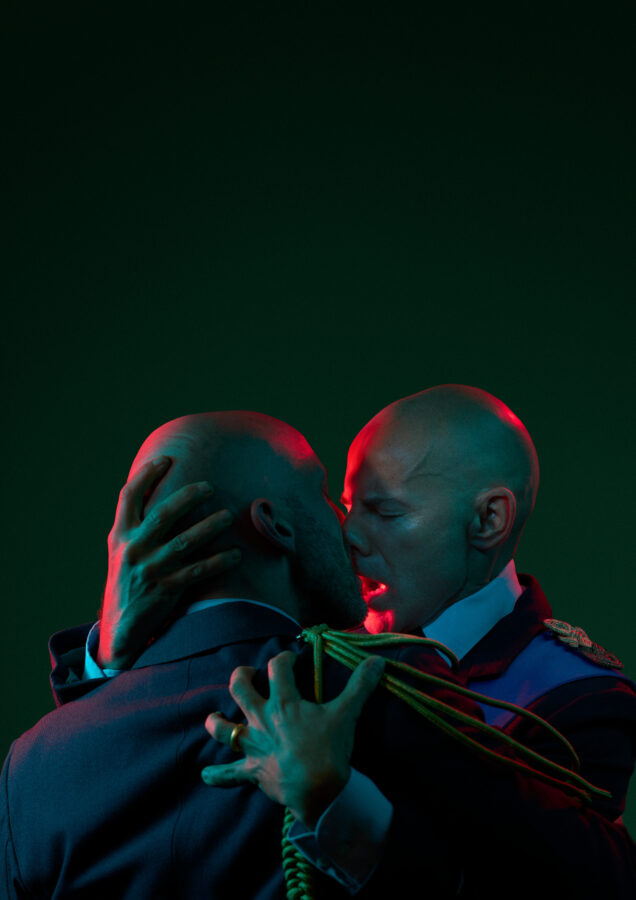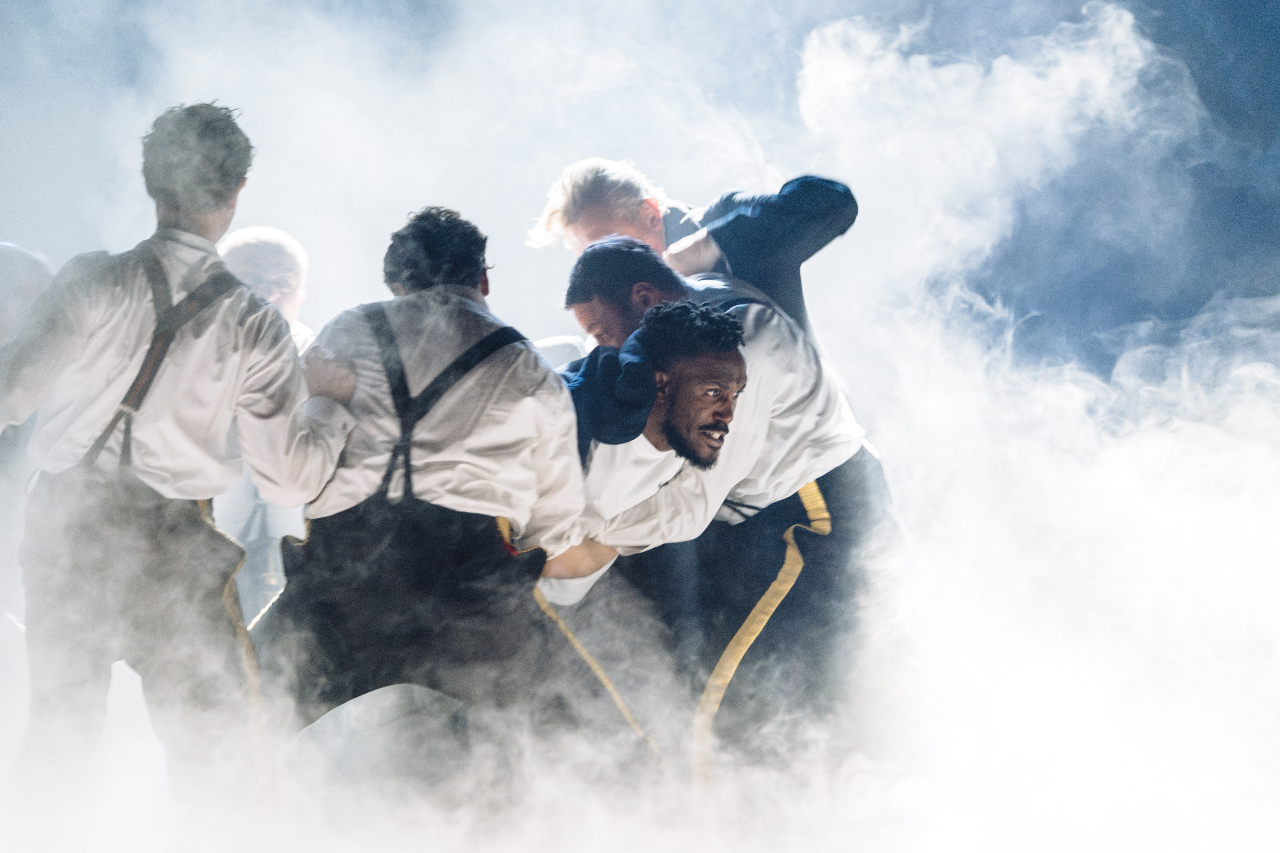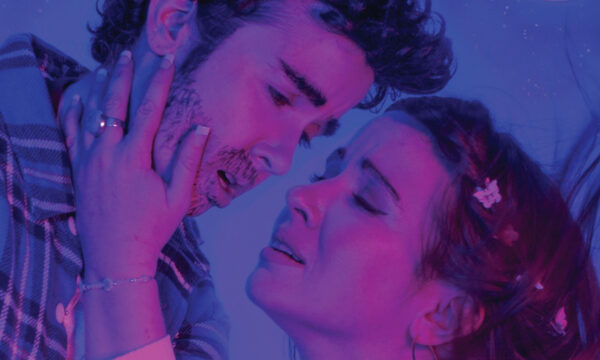“Gaveston is unapologetically himself”: Eloka Ivo on Edward II at the Swan Theatre

Eloka Ivo is making waves with his Royal Shakespeare Company debut as Gaveston in Christopher Marlowe’s Edward II. A character both rebellious and fiercely devoted, Gaveston is at the heart of a play that explores power, love and defiance against societal expectations. As Ivo takes on this complex role at the intimate Swan Theatre, he reflects on his approach to bringing Gaveston to life, the challenges of portraying historical figures and the ways in which Edward II still resonates today.
Congratulations on your RSC debut as Gaveston in Edward II. What drew you to this character, and how are you preparing to bring him to life?
Gaveston is unapologetically himself. I think in a world where we are constantly trying to perform and to conform, playing someone who doesn’t give two f**ks what people think of him is great. I like marrying my own experiences with the characters. Not necessarily the literal experiences – I’ve never dated and doubt I’ll ever date anyone in the monarchy, but I’ve asked myself: “What would it be like to be completely ostracised?”, “Have I ever been so deeply in love?”, “What does power feel like?”… and so on.
Gaveston is such a fascinating figure – ambitious, daring, and deeply loyal. How have you approached exploring his complexities and his relationship with Edward?
He is very complex, and I think the fact that you can play him in many ways testifies to this. Our production stresses the love between Gaveston and Edward. That has helped me unlock who I think he is, and how he feels about the possibility of losing Edward. Daniel Raggett, our director, is great at inviting actors to see things from a different, often not so patent perspective. We play the reality of the situation when we step on stage and leave behind the umbrella of “characteristics” – which, at first, was quite daunting but has aided my understanding of Gaveston’s complexity. Anything can happen, and anyone can do anything in any given situation. It’s very emancipating when you’re doing a classical play.
The Swan Theatre’s intimate setting offers a unique space for storytelling. How do you think this will affect your performance and the audience’s connection to the story?
This play is a thriller. We’re hoping to evoke suspense in the audience, and I think the more intimate the space, the better. Audiences won’t have the distance to hide away from the tension in this production and that’s exciting!
What challenges and opportunities come with playing a historical figure in a play with such contemporary resonances?
I think the biggest challenge is trying to divorce myself from what has been done before, and from the cynicism that surrounds Edward and Gaveston’s relationship in history. Luckily it was all so long ago, I don’t really feel any pressure to “get it right”. Any actor playing any character has an opportunity to see the character in a distinctive way, and I’m thrilled to be performing my own rendition of this well-known character.
Can you tell us a bit about your journey into acting? Was there a defining moment or experience that made you realise this was the career for you?
I started acting professionally a little later than the norm – I went to university and got an office job, but my passion was always acting. I studied Waiting for Godot in my last year of school and I can remember my mind being totally blown by it. “Nothing happens” but that play definitely did something to me. I watched it again last year and I had goosebumps – it felt like a full-circle moment.
In addition to acting, it seems that you’re also a writer. Could you tell us more about what inspires you to write and how you balance acting and writing?
I don’t think innovation should be a currency – we are performing a play written centuries ago, and there is still plenty of newness to be found in it. Yet, unusual and new perspectives inspire me to write. The ability to make people see something differently has always enticed me. It does however mean I’m constantly trying to convince people how “it could work”. Sometimes it does not… Acting (in any medium) and writing simultaneously is a constant struggle for me, though it is exciting how one informs the other. Edward II has made me rethink a lot about power and status in the stories I’ve written.
Marlowe’s Edward II deals with defiance against societal norms, particularly in love and identity. How do you think its themes resonate with audiences today, especially in an era of increasing awareness about diversity and inclusion?
The first part of the play depicts two people in love who are continually told they can’t be. We did a run the other day, and Ruta Gedmintas (our wonderful Queen Isabella) said how sad it was that Edward and Gaveston aren’t allowed to be together because of what is expected in society. I knew this from years back when I read the play, but hearing her say it so earnestly and so simply hit home. “As long as it’s not harming anyone or yourself, love who you want to love and be who you want to be.” You’d hope that would resonate with some audience members in any period, but I’m certain it should with those coming to see the play now.
What advice would you give to aspiring actors and writers?
I feel somewhat unequipped to answer this question, and I know this is very cliché, but I genuinely think that the most important thing is to have fun. Arguably, my favourite part of Edward II has been acting alongside Daniel Evans (who plays the titular role), who previously directed me. Seeing him (the actor) play and have fun is a joy! He’s a great actor and I’m honoured to be working alongside him. There are some heavy moments in Edward II but, despite the content of the play, in rehearsals, Daniel continually brings a sense of lightness and enjoyment. Although obvious when starting in acting or writing, I think it’s easy to forget this. Try to always have fun. We’re putting on a PLAY!
Thank you so much for taking the time to answer our questions.
Natallia Pearmain
Photos: Helen Murray
Edward II is at Swan Theatre from 21st February until 5th April 2025. For further information or to book visit the theatre’s website here.



























Facebook
Twitter
Instagram
YouTube
RSS